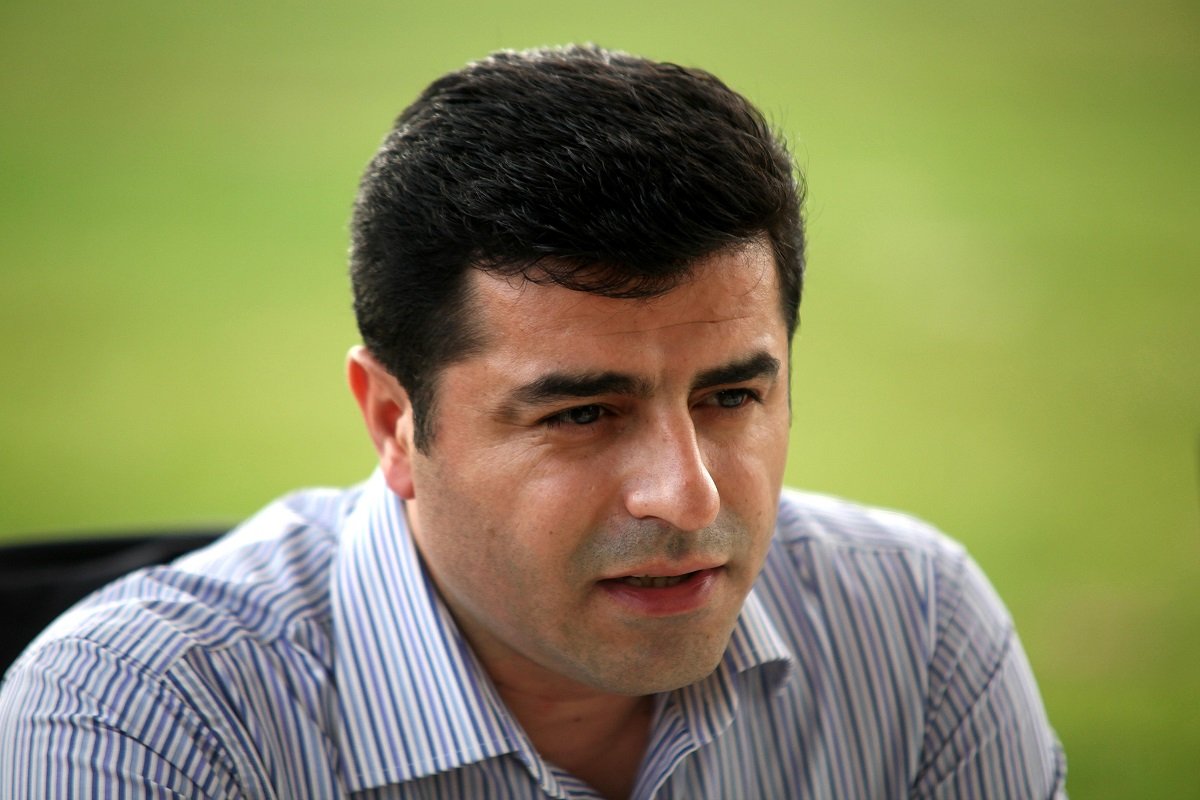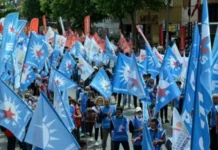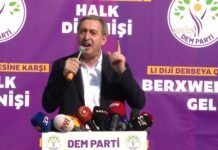Prominent Kurdish politician Selahattin Demirtaş has expressed full support for an ongoing peace process aimed at resolving the decades-long armed conflict between the outlawed Kurdistan Workers’ Party (PKK) and Turkey despite his continued incarceration, according to a statement released by the pro-Kurdish Peoples’ Equality and Democracy Party (DEM Party), Turkish Minute reported.
A delegation from the DEM Party, consisting of lawmakers Pervin Buldan and Mithat Sancar, met with jailed Kurdish politicians including former co-chairs of the pro-Kurdish Peoples’ Democratic Party (HDP) Demirtaş and Figen Yüksekdağ as well as Selçuk Mızraklı and Semra Güzel during visits to the Edirne and Kandıra prisons.
A written statement issued after the meetings said the discussions mainly focused on the peace process, with the participants exchanging views and information on the steps needed to advance it.
“Selahattin Demirtaş voiced his full support for the process and said he is ready to contribute in every possible way to ensure its success and to help establish peace and democracy,” the DEM Party said.
Demirtaş’s reiteration of support for the peace process comes at a time when the Turkish goverment has recently appealed a European Court of Human Rights (ECtHR) ruling that called for his immediate release, requesting that the case be referred to the court’s Grand Chamber before the decision becomes final.
The appeal challenges a July 8 decision by the Strasbourg court that found Turkey in violation of the European Convention on Human Rights (ECHR), saying Demirtaş’s pretrial detention for more than four years had “pursued an ulterior purpose, namely that of stifling public debate and limiting the scope of democratic debate.”
Demirtaş, a prominent Kurdish politician and vocal critic of the Turkish government and President Recep Tayyip Erdoğan, was initially arrested on November 4, 2016 on charges including “dissemination of terrorist propaganda” and alleged links to the PKK. The charges against him and other Kurdish politicians are seen widely as politically motivated.
The statement added that Yüksekdağ, who has also been behind bars since 2016, also expressed optimism about building a democratic and peaceful society, saying she would continue to back the process.
The DEM Party described the meetings as “highly productive,” noting that all four politicians were in good health and high spirits. It reiterated its call for their release, saying their continued imprisonment “cannot be legally or morally justified” and urging the government to “end this injustice so that our friends can join the march for peace and democracy under free conditions.”
The fact that well-known Kurdish politicians such as Demirtaş and Yüksekdağ are being held in prison at a time when the government conducts peace talks with the PKK raises suspicions about the government’s motives.
There are fears that the peace process aimed at ending the decades-long conflict with the PKK is being used for political theater without addressing the core issues of justice and political inclusion.
The renewed peace process was initiated in October 2024 by far-right Nationalist Movement Party (MHP) leader Devlet Bahçeli, who publicly called on jailed PKK leader Abdullah Öcalan to urge the militant group to lay down its arms. Öcalan responded in February with a message calling on the PKK to disarm and disband. The militants burned their weapons in northern Iraq as a symbolic first step on July 30.
Meanwhile, the DEM Party’s İmralı delegation, which has been visiting Öcalan in prison on İmralı Island as part of the peace process, is set to meet with President Erdoğan for the third time on October 28, according to party sources. Buldan and Sancar previously met with Erdoğan on April 10 and again on July 7 at the presidential complex in Ankara.
The first meeting marked the resumption of official dialogue between the ruling Justice and Development Party (AKP) and the pro-Kurdish movement after 13 years and was attended by the late Sırrı Süreyya Önder, then deputy speaker of parliament. The second meeting included AKP Deputy Chairman Efkan Ala and National Intelligence Organization (MİT) head İbrahim Kalın.















